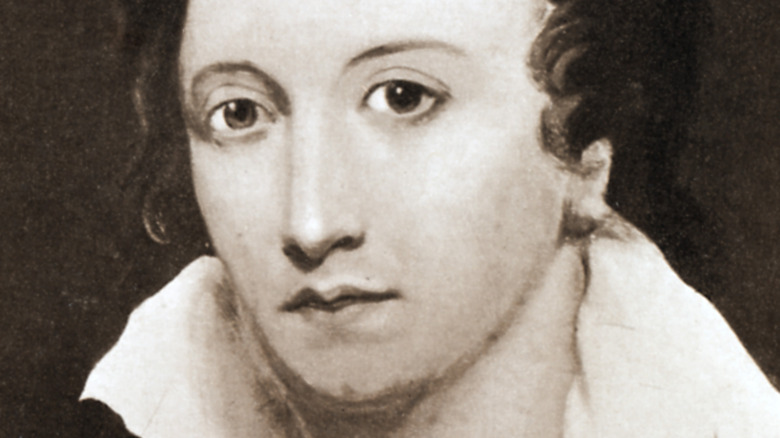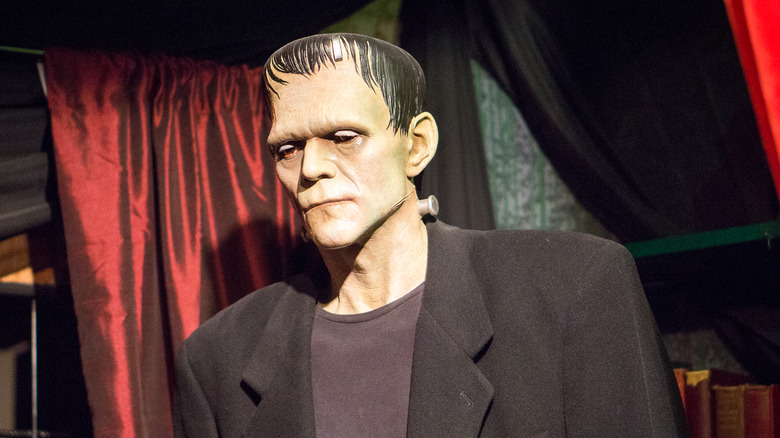The Famous Poet You Didn't Know Was Vegetarian
With vegetarianism's renewed mainstream nature, it is easy to forget that the practice itself is ancient, albeit rarely enjoying such popularity outside of a monastic setting. For example, one outspoken proponent was the Romantic English poet Percy Bysshe Shelley, who today is primarily remembered for marrying Mary Shelley and his poem "Ozymandias," which Bryan Cranston read as the promotional material for the "Breaking Bad" episode of the same name (via YouTube).
According to Thomas Hogg, a fellow Oxford student, as quoted by the International Vegetarian Union, by age 18, Percy was already following a vegetarian diet in part inspired by his belief in the transmigration of souls expounded by the first famed vegetarian Pythagoras, he of the equation. Namely, a person's soul could cycle into an animal's after death, which means that all of life has an equal value. Such beliefs also led Percy to develop political views that were radical then and would still be on the thicker side of the left today.
The best example of how devoted Percy was to vegetarianism came in his essay "A Vindication of a Natural Diet," in which he argues in pre-Darwinian terms that humanity had not evolved to be carnivorous: "Let the advocate of animal food, force himself to a decisive experiment on its fitness, and as Plutarch recommends, tear a living lamb with his teeth, and plunging his head into its vitals, slake his thirst with the steaming blood."
Frankenstein's monster was a vegetarian, as well
While it's not often the main topic of discussion, it appears the Shelley's decided Frankenstein's monster was also a self-professed vegetarian. In "Frankenstein's Vegetarian Monster," Carol J. Adams quotes the speech the Creature gives outlining its diet: "My food is not that of man; I do not destroy the lamb and the kid to glut my appetite; acorns and berries afford me sufficient nourishment ... The picture I present to you is peaceful and human."
The BBC explains that Mary Shelley's vegetarianism was greatly influenced by the household in which she grew up and later attracted her future husband to visit, as it was a meeting ground for radicals, most of whom espoused such a diet. However, what is even more interesting is the connection between such a diet and an idea of humanity's fallen state. The Creature makes a clear distinction between carnivorous man and the peaceful human satiating themselves with what nature provides.
A similar point ripples throughout "A Vindication of a Natural Diet," in which Percy Bysshe Shelley champions a diet devoid fo anything that had once lived and liquids other than distilled water, meaning specifically no alcohol. He, in fact, opens with the declaration — for Shelley always declares — "I hold that the depravity of the physical and moral nature of man originated in his unnatural habits of life." These depravities included slavery and the exploitation of the working classes among more natural ailments. So, Shelley's vegetarianism remains relevant.

